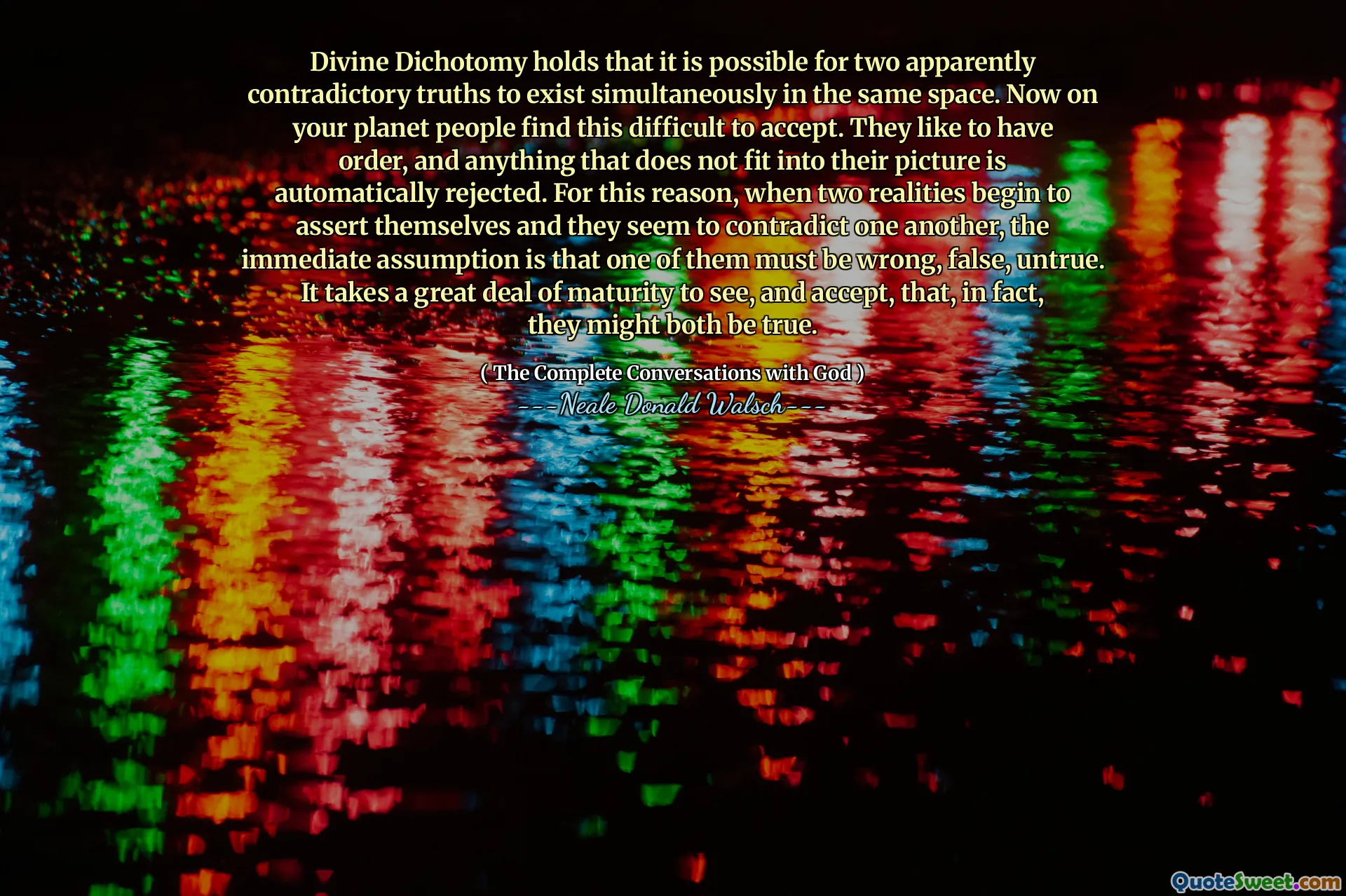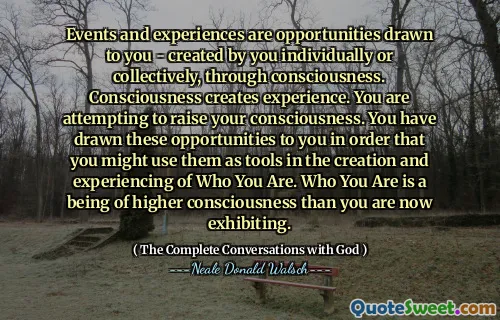
Divine Dichotomy holds that it is possible for two apparently contradictory truths to exist simultaneously in the same space. Now on your planet people find this difficult to accept. They like to have order, and anything that does not fit into their picture is automatically rejected. For this reason, when two realities begin to assert themselves and they seem to contradict one another, the immediate assumption is that one of them must be wrong, false, untrue. It takes a great deal of maturity to see, and accept, that, in fact, they might both be true.
This quote explores the profound idea that truth is not always black and white but often exists in the grey areas of coexistence. In many societal and personal contexts, humans tend to seek clarity and simplicity, favoring beliefs that can be neatly categorized. This urge for order, while comforting, can limit our understanding of complex phenomena. The concept of Divine Dichotomy challenges us to expand our perception, urging us to accept that conflicting truths can reside in harmony rather than opposition. For example, in personal relationships, it's common to perceive others as either 'right' or 'wrong,' but maturity reveals that multiple perspectives can be valid simultaneously, enriching our comprehension rather than diminishing it. Recognizing this duality demands intellectual humility and emotional strength—the ability to accept ambiguity and contradiction without needing to resolve everything into a single narrative. This mindset fosters tolerance, open-mindedness, and a deeper sense of compassion, because it reminds us that reality is often layered and multifaceted. Embracing contradictory truths can lead to spiritual growth and a more nuanced understanding of life's complexities. As we challenge our ingrained need for absolute certainty, we open ourselves toward acceptance of paradox, ultimately leading to greater peace and wisdom.







